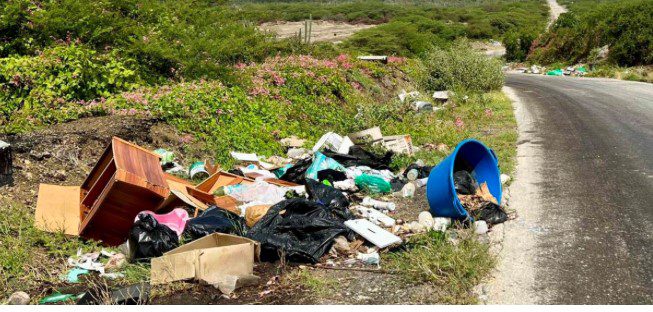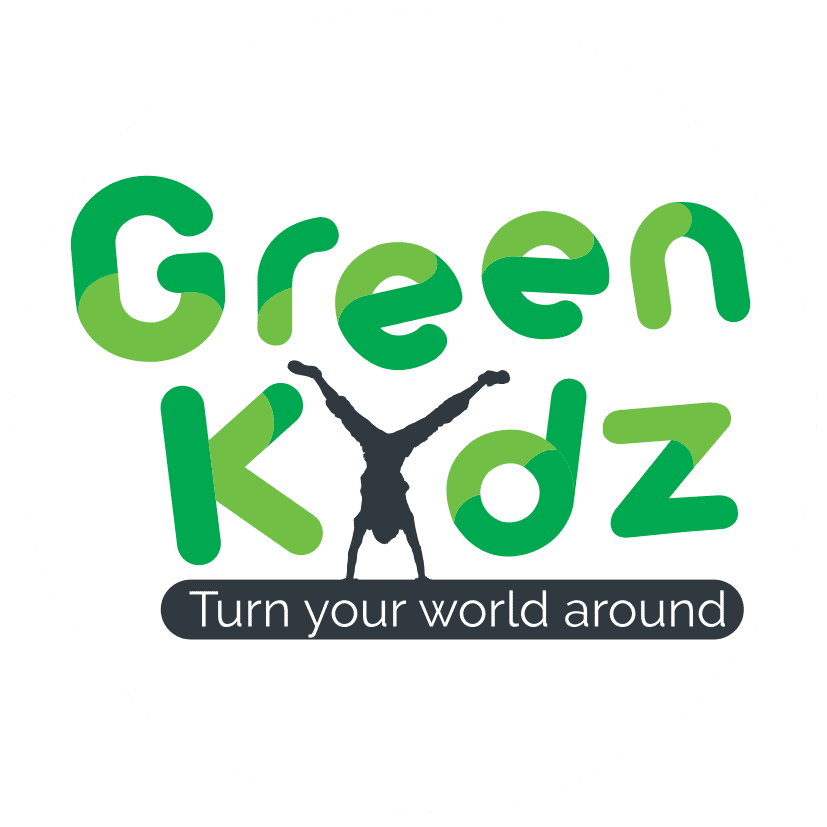
GreenKidz participates in news publication
In September 2023, GreenKidz collaborated on an insightful article addressing the litter issue in Curaçao. Journalist Eva Breukink from the online news platform ‘Caribisch Netwerk’ interviewed three experts for her article titled “Why is Curaçao so Dirty?”. The experts included social psychologist Stacy Mac Donald, GreenKidz coordinator Maya Mathias, and sociologist Aart Broek. Read the article below:
Why is Curaçao so Dirty? Addressing People’s Behavior
Cups, foam containers, cans, plastic bags. In Curaçao, litter is a common sight. Even along remote dirt roads in natural areas, items like refrigerators, rubble, and garden waste are discarded. Why do people act this way? And how can this behavior be changed?
Social psychologist Stacey Mac Donald is astonished that in her birthplace of Curaçao, it’s still common for people to thoughtlessly toss a cup or an empty soda can onto the street from a car window. “We don’t precisely understand why people do this, but we do know that multiple factors contribute.”
It begins with the availability of waste disposal options. Are there sufficient trash bins on the streets, and are they emptied regularly? Global studies indicate that the tidier a place is, the cleaner it remains.
‘Social Accountability Matters’
However, the issue is more complex. “It’s also about the value you assign to a place,” Mac Donald explains. “People don’t want litter in their cars or gardens, so they dispose of it on the streets or in the mondi (wilderness). This suggests that the island and its natural environment are perceived as less important than one’s immediate surroundings.”
Often, individuals are unaware of the detrimental effects of litter on both humans and the environment. “Sometimes, it’s simply a matter of convenience and not reflecting on one’s actions,” she added.
“It’s not customary in Curaçao, but it would be beneficial if we held each other accountable for our actions. This form of social accountability is impactful, especially when it comes from someone you respect.”
Maya Mathias from the GreenKidz Foundation observes the positive outcomes of awareness programs in schools. Over the past eight years, GreenKidz has engaged thousands of students across various educational levels. “With our educational materials, children understand the significance of a clean environment and how they can effect change. We instill in them a passion for nature, and the natural outcome is that they become more environmentally conscious.”
Ambassadors
Teacher training students in Curaçao also learn how to deliver green lessons using the foundation’s programs. These newly trained teachers, along with the thousands of students they educate, are the future’s ambassadors.
“Our lessons emphasize self-worth and empowerment. We don’t criticize students by saying ‘what a poor choice your parent made’ if they litter, but rather ‘you can now explain why it’s better not to act that way’.”
Mathias notes a growing emphasis on sustainability and a cleaner Curaçao. GreenKidz is receiving more requests for educational materials, and educators are increasingly organizing eco-friendly projects. However, she describes the current state of pollution on the island as “extremely concerning.”
“We are just one component in a larger system,” Mathias remarks. “Education is most impactful when followed by immediate action, like installing recycling stations at schools, gas stations, and supermarkets. However, this often leads to logistical challenges.”
‘It’s Up to the Government’
Changing behavior is a long-term endeavor. Most initiatives and campaigns advocating for a cleaner island are short-lived. “The key lies in consistently reinforcing the message,” emphasizes social psychologist Mac Donald. “The motivation to care for one’s surroundings must genuinely come from within. This internal drive fosters responsibility and facilitates the abandonment of old habits.”
Mac Donald believes that a sustained, year-long campaign is the government’s responsibility. She also advocates for stringent measures against those who litter, citing the pristine condition of Singapore as an example. “If you litter there, you are immediately slapped with a hefty fine.”
‘A Global Issue’
Sociologist Aart G. Broek observes a current lack of political support in Curaçao “for the time being” to address the pollution issue. He believes that the cleanliness observed in countries like the Netherlands is primarily due to significant investments in “clean-up initiatives.” He adds, “Waste management is efficiently organized, with facilities like environmental centres playing a crucial role. Additionally, there’s a heightened awareness about the importance of not thoughtlessly discarding items.”
The GreenKidz Foundation was established in 2015 with the goal of ‘Changing the mindset of generations’. In recent years we have reached thousands of students and hundreds of teachers with modern, multilingual environmental education. In the coming years we will focus on young people throughout the Dutch Caribbean with innovative nature and environmental education and (digital) learning programs.
Download here our KvK extract
Download here our mission-document
Download here our vision-document
Download here our annual report
Download here our team-document
Download here our media releases
GreenKidz Foundation | Kaya Abrahamsz 21 | MCB nr.: 27502502 | +5999 528-0445 | maya@greenkidz.org



